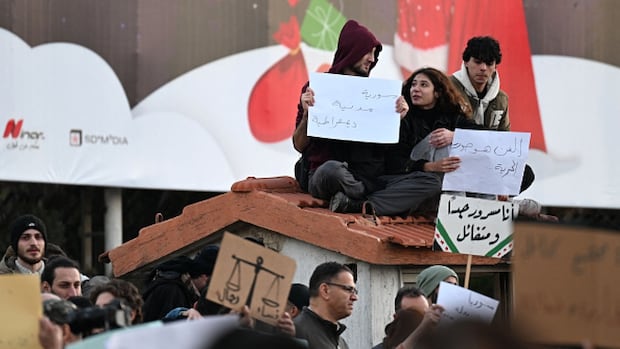Top US diplomats from the Biden administration are in Damascus on Friday to meet with the new Syrian government led by Hayat Tahrir al-Sham (HTS), a State Department spokesman said, the first face-to-face and official meeting between Washington and the de facto new Syrian rulers.
Diplomats will also seek information on the whereabouts of missing American journalist Austin Tice.
Assistant Secretary of State for Middle Eastern Affairs Barbara Leaf, former special envoy for Syria Daniel Rubinstein and the Biden administration’s chief envoy for hostage negotiations, Roger Carstens, are the first US diplomats to travel to Damascus since Syrian opposition militias ousted oppressive President Bashar al-Assad.
The visit comes at a time when Western governments are gradually opening channels to HTS and its leader Ahmed al-Sharaa and are beginning to debate whether or not to remove the group’s terrorist designation. The US delegation’s trip follows contacts with France and Britain in recent days.
During their meetings, US officials will discuss with HTS representatives a set of principles such as inclusiveness and respect for minority rights that Washington wants included in Syria’s political transition, the spokesman said.
Journalist kidnapped in 2012
The delegation will also work to obtain new information about Tice, who was captured during a reporting trip to Syria in August 2012, and other American citizens who have disappeared under the Assad regime.
“They will engage directly with the Syrian people, including members of civil society, activists, members of various communities and other Syrian voices about their vision for the future of their country and how the United States can help support them,” the department spokesman said .
“They also plan to meet with HTS representatives to discuss the transition principles endorsed by the United States and regional partners in Aqaba, Jordan,” the spokesman said.
The United States severed diplomatic ties with Syria and closed its embassy in Damascus in 2012.
In a seismic moment for the Middle East, Syrian rebels seized control of Damascus on December 8, forcing Assad to flee after more than 13 years of civil war, ending his family’s decade-long rule.
The lightning offensive raised questions about whether the rebels would be able to secure organized transit
The US considers the rebel leader a terrorist
Forces under the command of Ahmed Al-Sharaa – better known as Abu Mohammed Al-Golani – replaced the rule of the Assad family with a three-month transitional government that ran a rebel enclave in Syria’s northwestern Idlib province.
In 2013 Washington designated al-Sharaa as a terrorist, saying al-Qaeda in Iraq had tasked him with toppling Assad’s rule and establishing Islamic Sharia law in Syria. It said the Nusra Front, the predecessor of HTS, had carried out suicide attacks that killed civilians and maintained a violent sectarian outlook.
US President Joe Biden and his top aides described Assad’s ouster as a historic opportunity for the Syrian people, who have lived under his oppressive rule for decades, but also warned that the country faces a period of risk and uncertainty.
Washington remains concerned that the extremist group ISIS could seize the moment to make a resurgence and also wants to avoid any clashes in the country’s northeast between Turkish-backed rebel factions and US-allied Kurdish militias.
https://i.cbc.ca/1.7416011.1734681032!/fileImage/httpImage/image.jpg_gen/derivatives/16x9_1180/damascus-protest.jpg?im=Resize%3D620
2024-12-20 09:56:18

